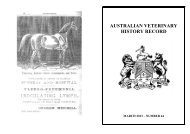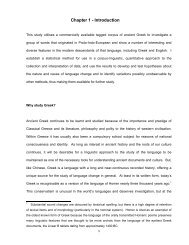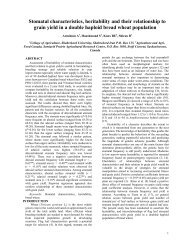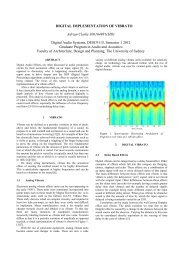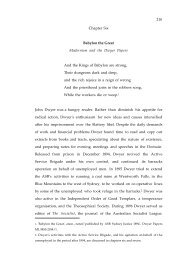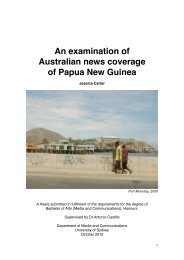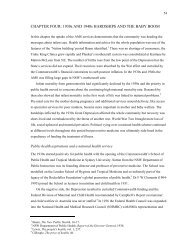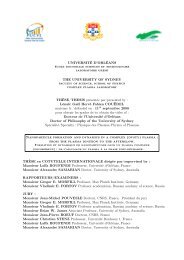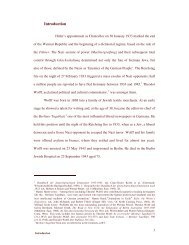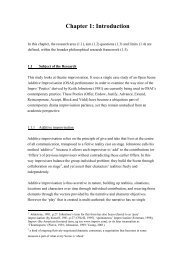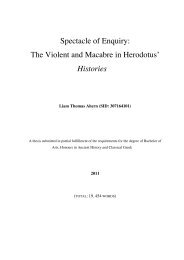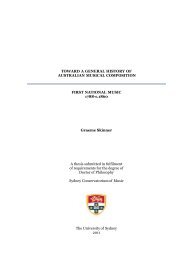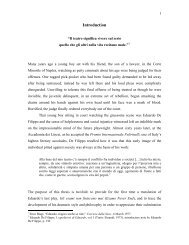journal of digital research & publishing - The Sydney eScholarship ...
journal of digital research & publishing - The Sydney eScholarship ...
journal of digital research & publishing - The Sydney eScholarship ...
You also want an ePaper? Increase the reach of your titles
YUMPU automatically turns print PDFs into web optimized ePapers that Google loves.
1 P M J O U R N A L O F D I G I T A L R ESEARCH & P UBLISHING<br />
Joyce and Kraut (2006) present an argument for the reinforcement model, which<br />
‘predicts that people repeat actions that lead to positive reinforcements’ (p.725). Similarly,<br />
Bowman and Willis (2003) contend that people produce content to inform or entertain<br />
other users, while Shao (2009) suggests they wish to trigger responses or interaction. This<br />
paper asserts that these models can only explain, not predict, behaviour.<br />
Intentions<br />
Selfexpression is a process that allows users to control the impressions they give<br />
.Y70$"$5H&E^^^a&O7"%*&3"8&b$6603"&E^WV1&3"8&6+%>%)9&$"C(%"5%&76+%>*L&$"6%>'>%636$7"*M&<br />
Given the content <strong>of</strong> UGM sites such as Facebook, it is safe to suggest that users are seeking<br />
a reaction or acceptance from the community in which they choose to create their identity.<br />
While it can be assumed that there is intention behind the action, the actual intention<br />
cannot be assumed from the content generated by the user. It can be proposed that the user<br />
anticipates the outcomes that will result from their action or they would not have acted in<br />
6+%&4>*6&'#35%M&j7G%I%>S&G+36&6+%9&$"6%"8&67&,3$"&D>70&6+%*%&7(6570%*S&3"8&6+%>%D7>%&6+%&<br />
intention behind the action, is known only to them.<br />
Conclusion<br />
<strong>The</strong> philosophical argument is not new. Applied to social identitycreation and self<br />
disclosure, however, it highlights some interesting points. It does not make assumptions<br />
<strong>of</strong> the user or seek to decipher their behaviour or intentions. It proposes instead that users<br />
intentionally act and that there is choice and strategy behind their actions.<br />
_*%>*&7D&_=N&*$6%*&5>%36%&'>74#%*&$"&7>8%>&67&*+3'%&6+%&$0'>%**$7"*&,$I%"&7DDM&B+%*%&3>%&<br />
interpreted by others and it is the resultant idea that forms the basis for their conclusions.<br />
Users choose to engage in identitycreation and selfdisclosure because <strong>of</strong> the outcomes<br />
foreseen. <strong>The</strong> philosophical argument puts the onus <strong>of</strong> action back on the user through<br />
attributing them choice rather than attributing action to whim. Where the U&G model<br />
implies that any usergenerated content is fair game for psychological assessment, the<br />
philosophical perspective provides a way to evaluate user online behaviour as deliberate<br />
in search <strong>of</strong> outcomes.<br />
21



